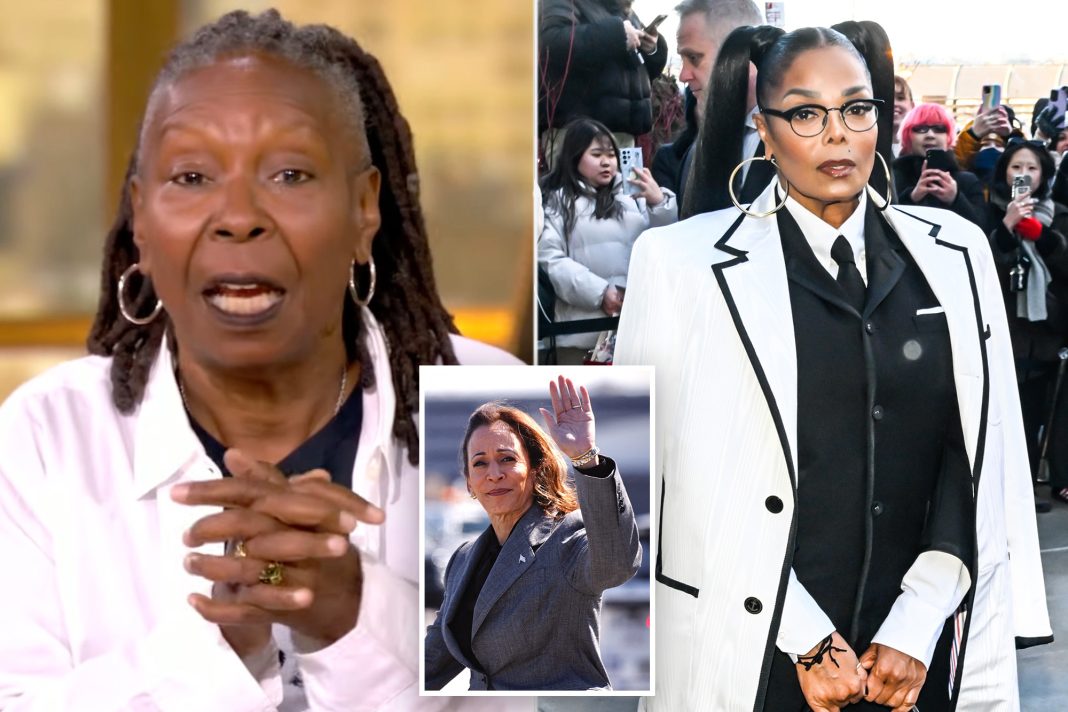In a recent episode of “The View,” the panel engaged in a heated discussion regarding Janet Jackson’s contentious remarks about Vice President Kamala Harris. The dialogue unfolded after Jackson, in an interview with The Guardian, made the erroneous claim that Harris is not Black, citing hearsay about her racial background. The pop star’s comments sparked immediate backlash, prompting co-host Whoopi Goldberg to come to her defense.
Goldberg urged critics to extend “a little grace” to Jackson, framing her comments within the context of being a public figure who, like anyone else, can stumble with misinformation. “Sometimes people get it wrong, and they’re wrong,” Goldberg stated, emphasizing that the nature of public discourse can lead to misunderstandings. This perspective taps into a broader societal issue: the balance between accountability and compassion when public figures make mistakes.
However, not all of Goldberg’s co-hosts shared her sentiment. Sunny Hostin expressed her reluctance to give Jackson’s comments undue attention, suggesting that the pop star’s statements shouldn’t dominate the conversation. Alyssa Farah Griffin chimed in, speculating that Jackson may not be consulting reputable sources for her information. Ana Navarro, meanwhile, took a firmer stance, condemning Jackson’s remarks as “spreading misinformation.” She acknowledged Jackson’s right to her opinions but criticized her for not using her platform responsibly.
Navarro’s argument underscores a critical point about the responsibility public figures have regarding the information they disseminate. In an age where misinformation can spread like wildfire, especially on social media, celebrities have a unique influence that can shape public opinion. The stakes are high—especially in a politically charged environment where understanding race and identity is fraught with complexity.
Adding another layer to the discussion was a statement attributed to a man claiming to be Jackson’s manager, which expressed her respect for Harris and her acknowledgment of the importance of accurate representation. However, this statement was swiftly discredited by Jackson’s management, indicating a lack of clarity around the matter. This incident not only illustrates the chaotic nature of celebrity communications but also raises questions about the authenticity and reliability of statements made on behalf of public figures.
Sara Haines, another co-host on “The View,” contributed to the conversation by highlighting the increasing prevalence of multiracial identities in the United States. She pointed out that many individuals navigating mixed racial backgrounds often feel caught between identities, underscoring the need for greater understanding and openness about personal identity. Haines’ remarks resonate with findings in recent studies that indicate a growing acceptance and recognition of multiracial individuals in society, reflecting a cultural shift toward inclusivity.
As the discussion unfolded, it became clear that the narrative surrounding identity—especially in the context of race and politics—remains a complex and sensitive topic. Goldberg’s call for grace reflects a desire for empathy in a world that often prioritizes criticism over understanding. In a society grappling with divisive issues, the need for compassion and dialogue is more crucial than ever.
Ultimately, the exchange on “The View” serves as a microcosm of the larger conversations occurring in the public sphere regarding race, identity, and accountability. While Jackson’s comments may have been misguided, they open the door for deeper discussions about the intersection of celebrity, race, and the responsibility that comes with a platform. As we navigate these conversations, it remains essential to balance critique with understanding, acknowledging that everyone—celebrity or not—can falter in their grasp of complex social issues.


